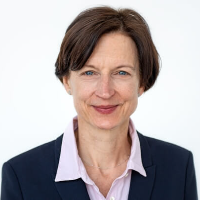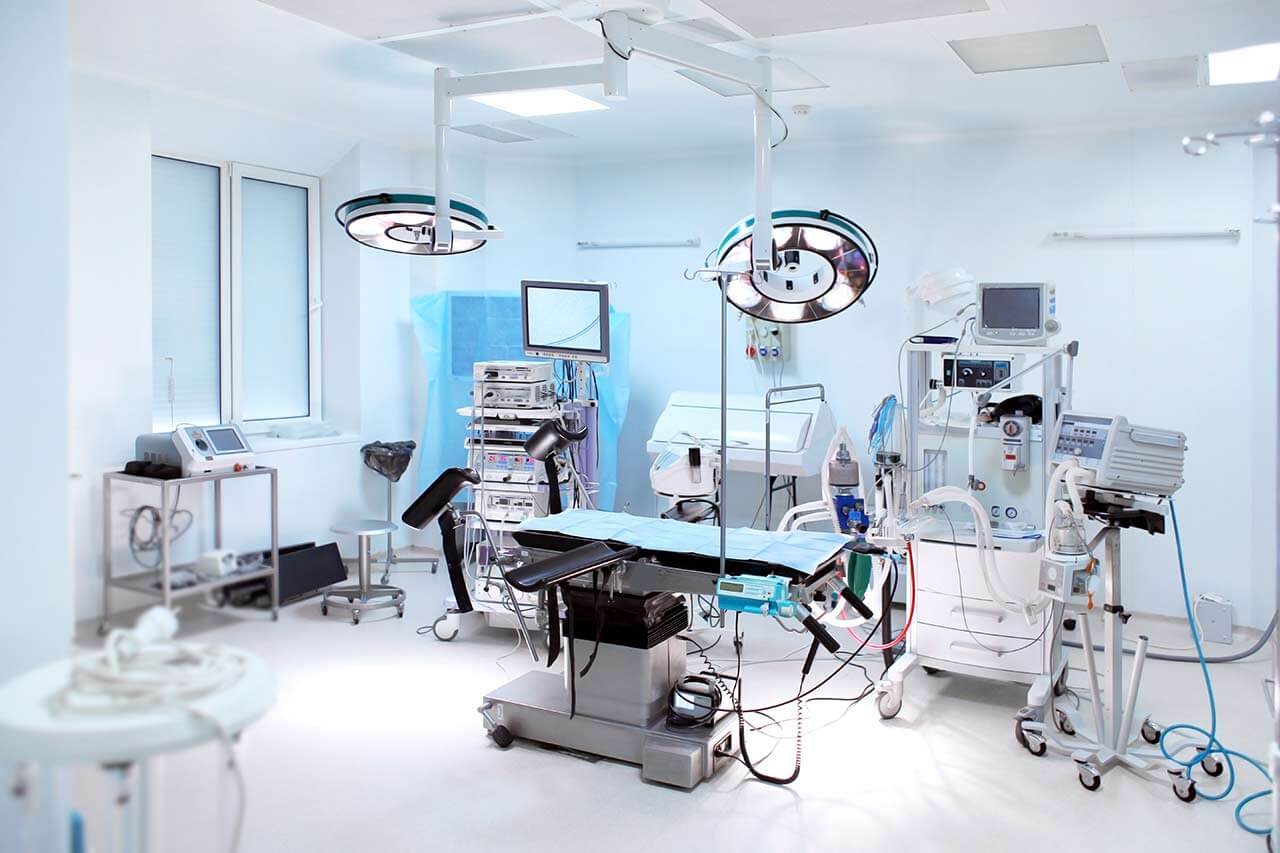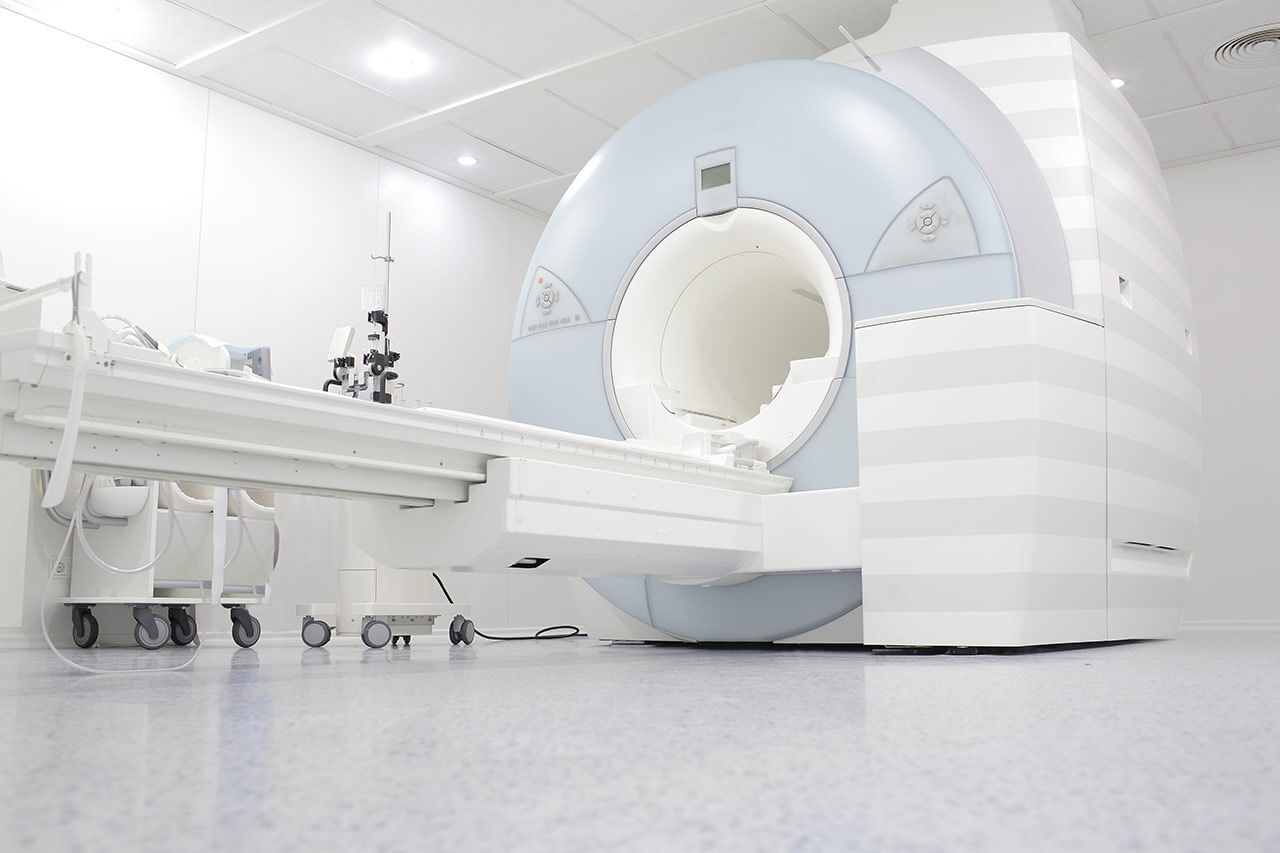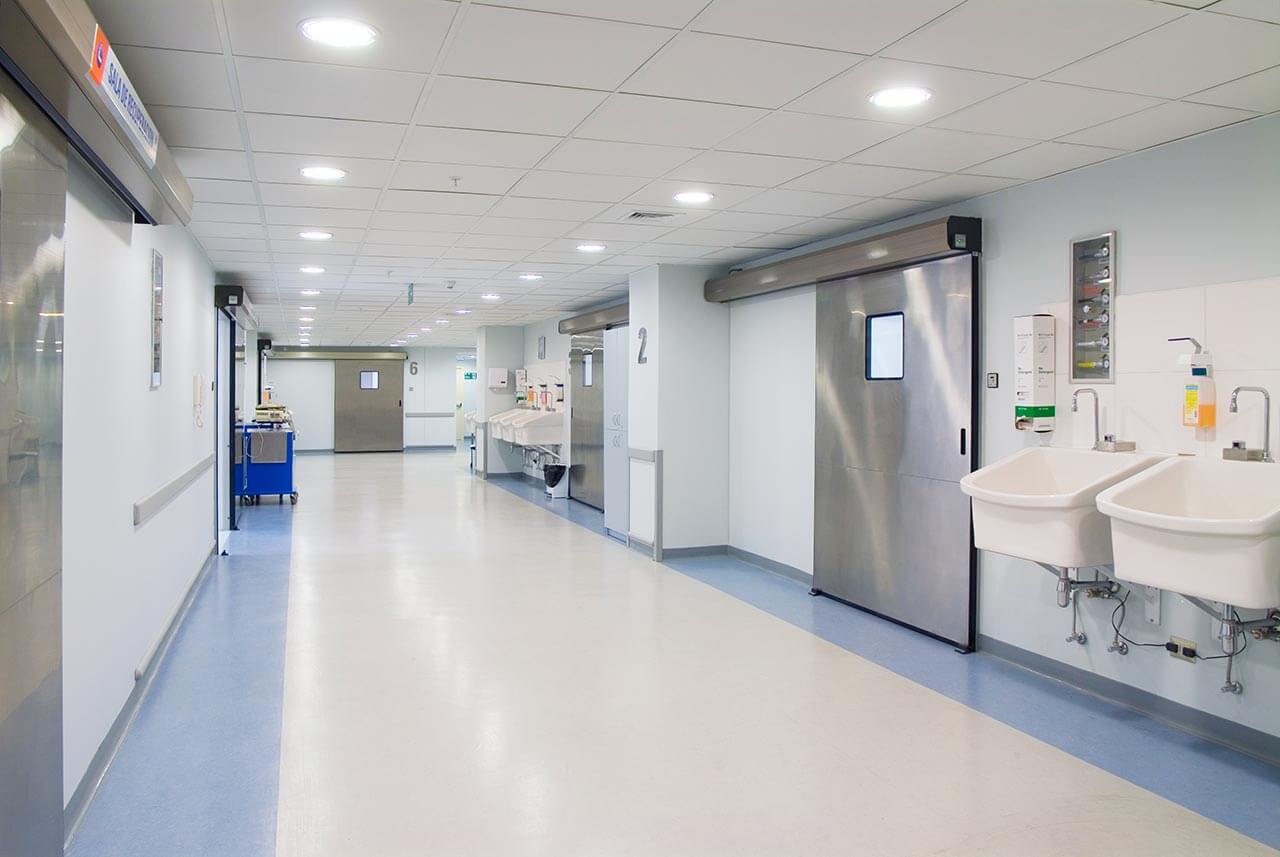
The program includes:
- Initial presentation in the hospital
- Clinical history taking
- Review of medical records
- Physical examination
- Laboratory tests:
- complete blood count
- biochemical analysis of blood
- tumor markers
- indicators of inflammation
- coagulation tests
- Ultrasound scan of the abdomen
- Differential diagnosis with other diseases
- Chemotherapy (1 course)
- Cost of essential medicines
- Nursing services
- Consultation of related specialists (tumor board)
- Treatment by chief physician and all leading experts
- Elaboration of further recommendations
How program is carried out
During the first visit, the doctor will conduct a clinical examination and go through the results of previous laboratory tests and instrumental examinations. After that, you will undergo an additional examination, including laboratory assessment of liver and kidney function, ultrasound scan. Based on the received results, the doctor will elaborate the chemotherapy regimen. If necessary, related medical specialists will be involved in the elaboration of a treatment regimen (tumor board).
Chemotherapy is carried out as the day hospital procedure, without mandatory admission to the hospital. After the placement of a venous catheter, you will stay in a comfortable ward. An infusion system will be connected to the catheter, through which the required drug or a drug combination will be administered. All drugs are administered by intravenous drip, slowly, so the total duration of the infusion can be up to several hours. All this time, doctors and nurses will monitor your health condition closely.
After the course of chemotherapy, you will stay under medical supervision in the ward for a few more hours. If your general condition is good, your doctor will allow you to leave the hospital. You will receive the medical report with detailed recommendations regarding further treatment. In the future, you will be able to have a distant consultation with your attending physician and schedule the next course of chemotherapy, if necessary.
Required documents
- Medical records
- MRI/CT scan (not older than 3 months)
- Biopsy results (if available)
Service
You may also book:
 BookingHealth Price from:
BookingHealth Price from:
About the department
The Department of Pediatric Hematology, Oncology, Endocrinology, Rheumatology and Neurology at the University Hospital Halle (Saale) offers a full range of modern diagnostics and treatment in its areas of specialization. It provides medical care for young patients with benign and malignant diseases of the hematopoietic system, solid tumors of various localizations, endocrine diseases, including diabetes mellitus, rheumatic diseases, and pathologies of the nervous system. The department's team of doctors uses only highly effective and reliable treatment methods, focusing on current international clinical protocols. Bone marrow transplantation in children is successfully performed here (JACIE certification). The department has created the most comfortable conditions for young patients: there are play areas where children can take a break from the therapeutic process. The outstanding achievements of the medical facility in the field of treatment of pediatric diseases are confirmed by numerous quality certificates, such as the ISO 9001:2015 certificate, the ClarCert certificate, the certificate of the German Cancer Society (DKG), the certificate of the German Diabetology Society (DDG), the certificate of the Association for Obesity in Children and Adolescents (AAKJ), and the certificate of the German Society for Clinical Neurophysiology and Functional Imaging (DGKN). The department is headed by Prof. Dr. med. Simone Hettmer.
Treatment of benign and malignant blood diseases is one of the priority areas of work of the department's specialists. Of particular interest is the treatment of blood cancers such as acute lymphoblastic leukemia, acute myeloid leukemia, chronic myeloid leukemia, juvenile myelomonocytic leukemia, and other types of oncology. Pediatric oncologists have all the tools in their arsenal to fight blood cancers. The first-line treatment is chemotherapy, the duration and intensity of which are determined individually. If clinically indicated, immunotherapy, targeted therapy, and radiation therapy may also be used. In complex cases, the department's physicians recommend autologous or allogeneic bone marrow transplantation. The procedure is performed in a specialized center certified according to the standards of the European organization JACIE. The department is also certified by the German Cancer Society (DKG) in the treatment of childhood cancer, which guarantees compliance with the highest medical standards in this specialty.
The department provides competent medical care for children with benign blood diseases, with a special emphasis on the treatment of hemoglobinopathies (for example, thalassemia and sickle cell anemia) and blood clotting disorders (for example, hemophilia A and B, von Willebrand disease, factor VII deficiency, and thrombocytopathy). The therapeutic process begins with the examination of the child, the results of which are used to plan the treatment tactics. If the diagnosis of hemoglobinopathy is confirmed, drug therapy, special diet, blood transfusion and red cell mass transfusion are prescribed, while in complex clinical situations bone marrow transplantation from a related or unrelated donor may be required. If a child is diagnosed with a coagulation disorder, drug therapy, intravenous administration of coagulation factor concentrates, and other therapeutic measures are used.
The department has a competent team of pediatric endocrinologists. Doctors of this specialty consult young patients with short stature, tall stature, obesity, precocious puberty and delayed puberty, bone metabolism disorders, diabetes mellitus, and diseases of the thyroid, adrenal, and pituitary glands. Hormone therapy is used here to treat endocrine disorders. Children with diabetes mellitus receive comprehensive medical care, including insulin therapy using the most advanced insulin pumps, blood glucose control using high-precision continuous monitoring systems, diet therapy, exercise therapy, and psychological support.
The medical facility also diagnoses and treats rheumatic diseases in children. The doctors of the department mainly deal with juvenile idiopathic arthritis, Lyme disease, chronic nonbacterial osteomyelitis, systemic lupus erythematosus, juvenile dermatomyositis, scleroderma, vasculitis and Kawasaki disease. Treatment includes drug therapy with various classes of drugs (nonsteroidal anti-inflammatory drugs, corticosteroids, biologics, etc.), physiotherapy procedures, diet therapy, and occupational therapy.
Pediatric neurology focuses on the medical care of children and adolescents with acute and chronic disorders of the peripheral and central nervous systems, as well as neuromuscular disorders. The pediatric neurologists in the department are highly qualified in the treatment of epilepsy and chronic headaches in children. In order to maximize the comfort of young patients, diagnostic and therapeutic procedures are performed on an outpatient basis, with hospitalization required only in complex clinical situations. The department performs all currently available diagnostic examinations to assess the development and function of the nervous system in children, including awake and asleep electroencephalography, long-term EEG, electromyography, electroneuromyography, computed tomography, and magnetic resonance imaging. As for the treatment, children most often receive drug therapy combined with physiotherapy. Young patients with cerebral palsy and spasticity undergo botulinum therapy.
The department's clinical focuses include the following:
- Hematology and oncology
- Diagnostics and treatment of malignant blood diseases
- Diagnostics and treatment of acute lymphoblastic leukemia
- Diagnostics and treatment of acute myeloid leukemia
- Diagnostics and treatment of chronic myeloid leukemia
- Diagnostics and treatment of juvenile myelomonocytic leukemia
- Diagnostics and treatment of benign blood diseases
- Diagnostics and treatment of hemoglobinopathies: thalassemia, sickle cell anemia, etc.
- Diagnostics and treatment of blood clotting disorders: hemophilia A and B, von Willebrand disease, factor VII deficiency, thrombocytopathy, etc.
- Diagnostics and treatment of solid malignant tumors
- Diagnostics and treatment of malignant blood diseases
- Endocrinology
- Diagnostics and treatment of short stature
- Diagnostics and treatment of tall stature
- Diagnostics and treatment of obesity
- Diagnostics and treatment of precocious puberty and delayed puberty
- Diagnostics and treatment of bone metabolism disorders
- Diagnostics and treatment of diabetes mellitus
- Diagnostics and treatment of thyroid diseases
- Diagnostics and treatment of adrenal diseases
- Diagnostics and treatment of pituitary diseases
- Rheumatology
- Diagnostics and treatment of juvenile idiopathic arthritis
- Diagnostics and treatment of Lyme disease
- Diagnostics and treatment of chronic nonbacterial osteomyelitis
- Diagnostics and treatment of systemic lupus erythematosus
- Diagnostics and treatment of juvenile dermatomyositis
- Diagnostics and treatment of systemic scleroderma
- Diagnostics and treatment of vasculitis
- Diagnostics and treatment of Kawasaki syndrome
- Neurology
- Diagnostics and treatment of epilepsy
- Diagnostics and treatment of multiple sclerosis
- Diagnostics and treatment of chronic headaches
- Diagnostics and treatment of cerebral palsy
- Diagnostics and treatment of spasticity
- Diagnostics and treatment of traumatic brain injuries
- Diagnostics and treatment of infectious diseases of the brain and spinal cord
- Other medical services
Curriculum vitae
Since 1 March 2024, Prof. Dr. med. Simone Hettmer has been Head Physician of the Department of Pediatric Hematology, Oncology, Endocrinology, Rheumatology and Neurology at the University Hospital Halle (Saale) and Professor for Pediatric Oncology at the Faculty of Medicine of the Martin Luther University Halle-Wittenberg. Prof. Hettmer graduated from the Faculty of Medicine of the Eberhard Karl University of Tuebingen, where she received her doctorate in 1999. She then worked as an Assistant Physician at the University Hospital Bonn. In 2001, Dr. Simone Hettmer received a fellowship from the German Childhood Cancer Foundation (Deutsche Kinderkrebsstiftung) in Washington, USA, where she conducted research in the laboratory for two years. Since 2003, she has held clinical and academic positions at Harvard University and its academic hospitals, Massachusetts General Hospital, and the Dana-Farber Children's Cancer and Blood Disorders Center in Boston. In 2006, Prof. Simone Hettmer was board certified in Pediatric Hematology and Oncology in the United States, followed by her board certification in these clinical areas in Germany in 2011. Dr. Hettmer returned to Germany in 2014 and took up a position as a Senior Physician in the Department of Pediatric and Adolescent Medicine at the University Hospital Freiburg. In 2016, she completed her habilitation at the University Hospital Freiburg and received her Venia legendi in Pediatric Hematology and Oncology.
Photo of the doctor: (c) Universitätsklinikum Halle (Saale)
About hospital
According to the prestigious Focus magazine, the University Hospital Halle (Saale) is one of the best medical institutions in Germany!
The history of the hospital goes back more than 300 years, and during this time it has managed to gain an excellent reputation not only in Germany, but also throughout the world. The hospital positions itself as a specialized healthcare facility for the treatment of severe and rare diseases and injuries. The hospital provides medical care to patients of all ages in compliance with the latest scientific achievements. The hospital is distinguished by successful research activities, especially in the field of cardiovascular diseases and oncopathologies – the specialists in these areas have made significant contributions to the development of the very latest diagnostic methods and therapeutic approaches.
The University Hospital Halle (Saale) has 30 specialized departments representing almost all areas of modern medicine, as well as 17 narrowly focused institutes. About 35,000 patients receive qualified medical care of European standards in the hospital every year, and more than 212,000 patients are served on an outpatient basis. This number of patients is evidence of the high efficiency of medical services and the excellent image of the hospital in the international medical arena; patients from all over the world regularly seek medical attention here.
Some of the hospital's structural units deserve special attention. For example, the Central Emergency Department (the largest in Saxony-Anhalt), modern dental clinics, the Perinatal Center, and the Transplant Center, which has a history of more than 40 years. The Transplant Center performs more than 40 kidney transplants annually, most of them from living donors.
Thanks to the use of the latest medical technologies and the availability of state-of-the-art equipment, many previously high-risk surgeries and procedures can now be performed in the hospital using sparing techniques. In this context, hybrid cardiac surgery and robotic surgery using the innovative da Vinci Si® system in urology are worthy of mention.
An integral part of the successful clinical practice of the University Hospital Halle (Saale) is the availability of experienced and competent medical staff. The total number of employees at the hospital is more than 4,450. Many physicians are known far beyond the borders of Germany: they regularly conduct important research that enables the development of modern medicine. In addition, the hospital specializes in training medical students, so qualified doctors and professors are willing to pass on their experience to the younger generation.
The hospital has many quality certificates such as DIN EN ISO 9001:2015 certificate, German Cancer Society (DKG) certificate, JACIE certificate, EndoCert certificate, ClarCert certificate, German Spine Society (DWG) certificate, German Trauma Society (DGU) certificate, CERT iQ certificate, LGA InterCetert certificate, and others.
Photo: (с) depositphotos
Accommodation in hospital
Patients rooms
The patients of the University Hospital Halle (Saale) stay in comfortable single, double, and triple rooms with a modern design. All patient rooms have an ensuite bathroom with a toilet and a shower. The standard patient room includes a comfortable automatically adjustable bed, a bedside table, a wardrobe, a table and chairs for receiving visitors, a TV, a radio, and a telephone. The patient rooms have access to Wi-Fi. For safety reasons, the use of laptops and cell phones is prohibited in some areas, including the intensive care units. The hospital also offers enhanced-comfort patient rooms.
Meals and Menus
The hospital offers delicious and well-balanced meals three times a day: breakfast, lunch, and dinner. Patients and their companions can choose from three daily menus, which always include dietary dishes. If necessary, an individual menu can be prepared for the patient. Children are offered a special menu with healthy and tasty dishes, rich in nutrients necessary for a growing body.
Further details
Standard rooms include:
![]() Toilet
Toilet
![]() Shower
Shower
![]() Wi-Fi
Wi-Fi
![]() TV
TV
Religion
Religious services are available upon request.
Accompanying person
Your accompanying person may stay with you in your patient room or at the hotel of your choice during the inpatient program.
Hotel
Your accompanying person may stay with you in your patient room or at the hotel of your choice during the inpatient program.




